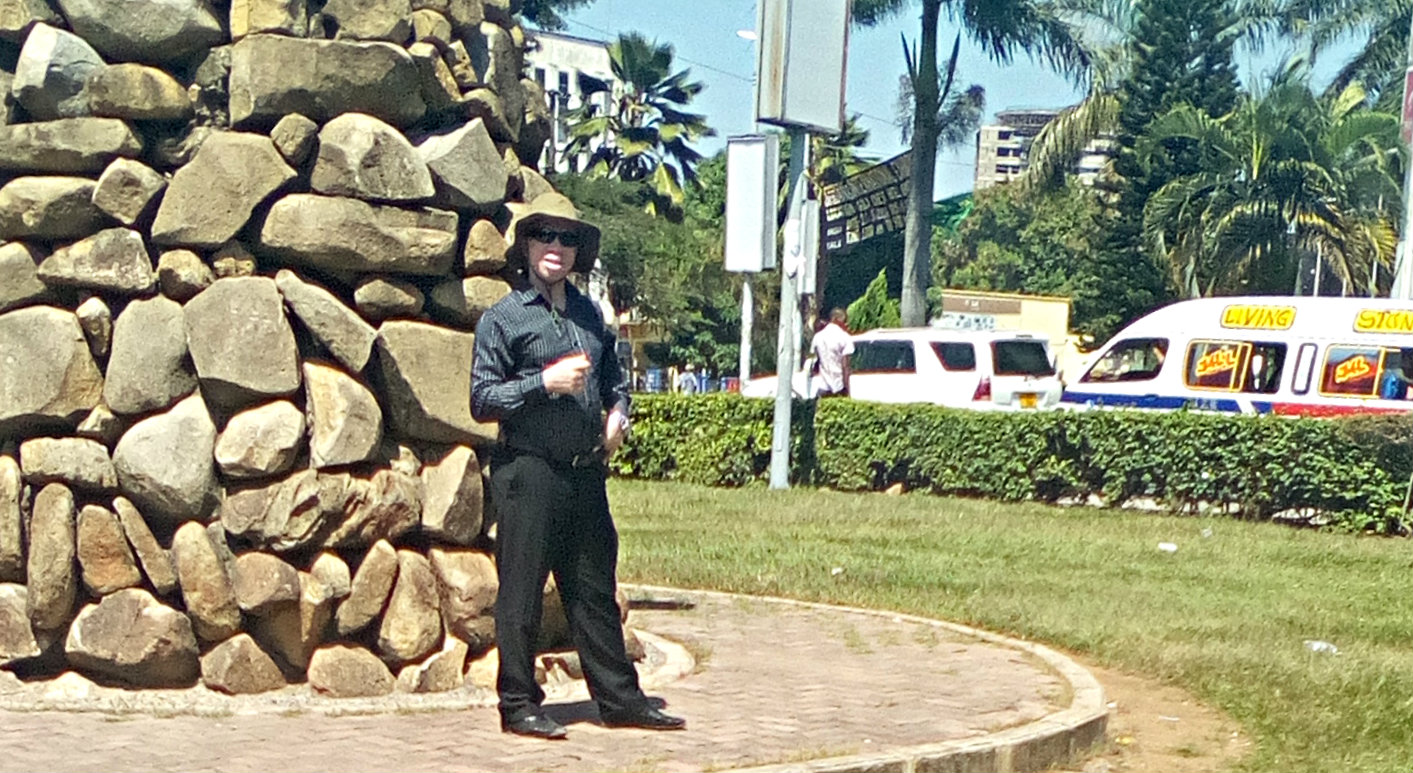“My father said I was a misfortune. He was ashamed of me.”
On 13 June, the world celebrates International Albinism Awareness Day. The day was declared by the United Nations in 2015 in response to the alarming number of kidnappings and murders of albino people in Tanzania and Kenya. At the time, UN Secretary General Ban Ki-Moon noted that the “cycle of attacks, discrimination and poverty” must be broken and the UN drew attention to the “erroneous beliefs, myths and superstition” that surround the condition and put albino people at risk.
Here, Mashaka Tuju writes about growing up with albinism in Tanzania and how discrimination from society affected him.
I was born in 1980 in Mwanza, a region in southern Tanzania. I’m the only person born with albinism in a family of eight children. While growing up, I experienced both successes and challenges. I had the opportunity to go to school, get married, find a job and be elected as a leader in different government institutions.
But when I was born, my father divorced my mum because of me. He didn’t want my mum to have a child with albinism. He said I was a misfortune. He was ashamed of me. It was shameful not only for him, but for his friends and relatives.
Most people with albinism have visual impairments. I was one of them.
Because of this problem, my father and his new wife decided that I shouldn’t go to school.
After campaigning from different groups, including teachers, relatives and religious leaders, my father decided to send me to primary school. I was 11-years-old.
School life as a child living with albinism
During school, I faced many challenges. I was abused and people called me names. Even though some teachers discriminated against me, the school’s head teacher was my best friend and she used to ask people to respect me.
Because of my good academic performance, the discrimination and abuse started to become less frequent. When they became more familiar with the challenges I faced in the classroom, they started to help me read text books. I also started using my knowledge to find solutions and help my classmates.
Killings of people with albinism in 2016
Throughout my childhood, I heard the saying, “People with albinism never die, they perish”.
That’s why the killings of people with albinism in 2016 didn’t come as a surprise. When the killings started, they were mainly happening in the Lake Zone in Tanzania.
The situation got worse when 10 people with albinism were murdered consecutively. Two of them were my best friends and one was neighbour.
I felt like I could be killed anyway. To survive, I moved in between houses – and even travelled in between different districts. This way murderers wouldn’t know where I was.
For some time, I couldn’t sleep at night because I thought someone would come in and murder me. When I was sleeping at my relatives’ house, they would stay awake all night to look after me. They were shocked with the situation.
Skin cancer risks among Tanzania’s albino community
Most people with albinism in Tanzania do not have the same access to education as I did. This results in poverty. Some people with albinism live on less than 1$ a day. Some are homeless. Some are farmers and this means that they expose themselves to the sun for more than seven hours per day, causing skin cancer.
According to research conducted by the Tanzania Albinism Society, nine out of ten people with albinism who are diagnosed with skin cancer die from the disease. In 2011, at least 17,000 Tanzanian albinos were said to be at severe risk of skin cancer because their fair pigmentation is particularly sensitive to the sun.
In 2009, I was told that I had skin cancer.
Thankfully the cancer was in an early stage and it was removed by surgery. Two of my best friends, who both had albinism, weren’t as lucky. They died.
Successes amid the difficulties
Albino killings and skin cancer totally disturbed my life. But like I said, I also had successes.
Between 2007 and 2015, before I joined Standing Voice, I worked as a secretary general at The Albinism Society, an organisation for people with albinism in Mwanza. With them, I led many seminars condemning albino murders and raised awareness about the condition.
I advocated passionately to parents of people with albinism, religious leaders, teachers, politicians and the media. I used television, radio, newspapers, workshops and art to reach as many people as possible. We hope that one day people with albinism will get their rights in the community.
Standing Voice, where Mashaka now works, in an NGO that tackles social exclusion of people with albinism in Tanzania by amplifying their voices and enabling them to shape their futures.


